English as an Additional Language (EAL)
International students are valued as part of our School community and we welcome many students from countries around the world every year. As boarders living and working with UK pupils, overseas students have an excellent opportunity to learn English in a ‘normal’, every-day environment. They are exposed to English 24/7 which helps them to improve and practise their language skills.
Their development is supported by our excellent provision for English as an Additional Language (EAL). EAL lessons speed up the learning process and offer a linguistic framework that enables students to be fully integrated and to participate in all aspects of school life – curricular and co-curricular, as well as social.
EAL lessons ensure that international students can maximise their potential at Barnard Castle School. Students are offered the opportunity to achieve Cambridge University English Proficiency Certificates, as well as being able to take recognised qualifications in a variety of subjects.
Initial assessment
All overseas students are tested on entry to ascertain levels of linguistic competency and ensure provision is targeted at the appropriate levels. On-line testing is carried out, based on the Common European Framework of Reference for Languages (see below).
Students who require EAL tuition are usually identified on application and referred to the EAL teacher, Mrs. Nicholson teaches all EAL pupils in the Prep School and Senior School. It may be necessary for overseas students to demonstrate a certain level of competence in English before any student visa can be issued.
All students admitted to the school requiring EAL support are assessed in terms of how much assistance they require, but typically this is likely to be one to two-and-a-half hours per week of specialist teaching, in addition to the normal curriculum.
Common European Framework of Reference for Languages
The teaching and evaluation is based on Common European Framework of Reference for Languages (CEFR). This internationally recognised framework describes language ability in a scale of levels which ranges from A1 for beginners to C2 for those who have mastered a language.
Each student is assessed at the start of the year and at the end of each term to monitor their progress. In using the European Language Passport, students are able to track their progress and also use it in their home country as a recognised proof of their ability. Although Asian students do not have an approved language framework, it is useful for them to keep a record of their progress in a similar format.
| Common European Framework | UK National Standards | Languages Ladder stages | Common English Qualifications |
| A1 Breakthrough | Entry Level | Breakthrough
Grades 1-3 |
Entry 1-3 |
| A2 Waystage | Level 1 | Preliminary
Grades 4-6 |
Foundation GCSE |
| B1 Threshold | Level 2 | Intermediate
Grades 7-9 |
Higher GCSE |
| B2 Vantage | Level 3 | Advanced
Grades 10-12 |
AS/A/AEA |
| C1 Effective Operational Proficiency | Level 4 | Proficiency
Grades 13-15 |
Honours Degree |
| C2 Mastery | Level 5 | Mastery
Grades 16&17 |
Postgraduate |
EAL Teaching
Overseas pupils in Years 7-11, who require special assistance with their English Language work attend class lessons during their normal school day. This is usually with a small group of approximately 4-7 pupils of similar age but not necessarily of the same ability. Class sizes are small to maximise the amount of individual attention received by each student.
During these five English lessons per week, the aim is to assist pupils whose first language is not English to gain sufficient command of all areas of the English language, to perform academically to the best of their ability, and to enable them, through developing greater fluency in speaking, to gain confidence socially so that they can participate fully in class and co-curricular activities.
Work in the EAL. department for Years 7-11 is marked in accordance with the School scheme, and assessments are awarded in the usual way, three times a term, as with all other subjects.
It is hoped that, if successful, these pupils will feel able to integrate into mainstream English sets for their year groups. By the end of Year 11, others will have at least progressed sufficiently, taking EAL examinations as they become increasingly proficient, to gain an acceptable level in EAL examinations for university entrance during their Sixth Form years. Sixth Form students receive on average two 35-40 minutes lessons each week as permitted by timetable limitations.
The main aim of EAL lessons is to prepare students for the examinations they require to enable them to undertake higher education courses at English speaking universities and colleges. The examinations students may take, and for which they receive tuition, include:
- Cambridge ESOL Exams – Levels PET, FCE, CAE
- IELTS (International English Language Testing System)
- iGCE English as a Second Language
The EAL department is fully resourced with course books and books on grammar, vocabulary and listening skills, and resource books for older pupils and teachers. There is also a section of fiction books for pupils, suitable for all ability levels, in the department, as well as in the School library.

